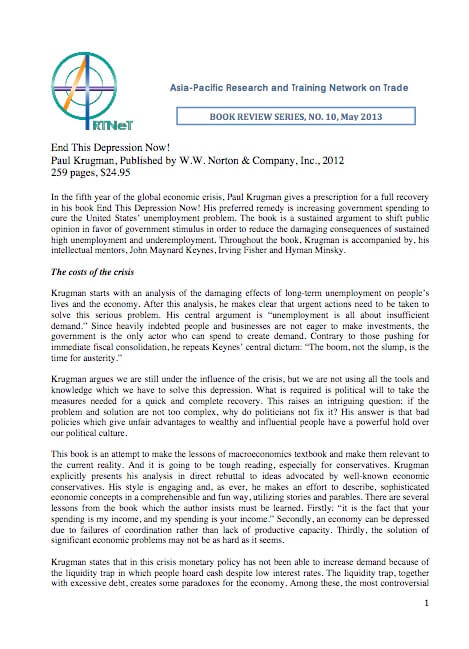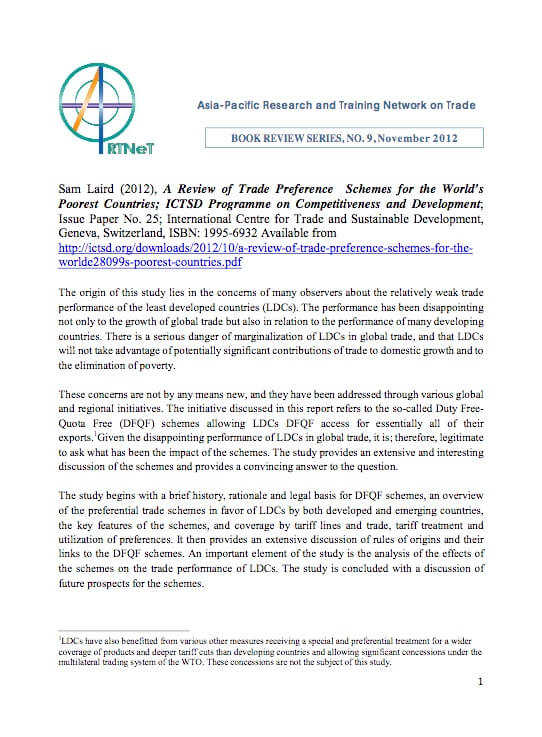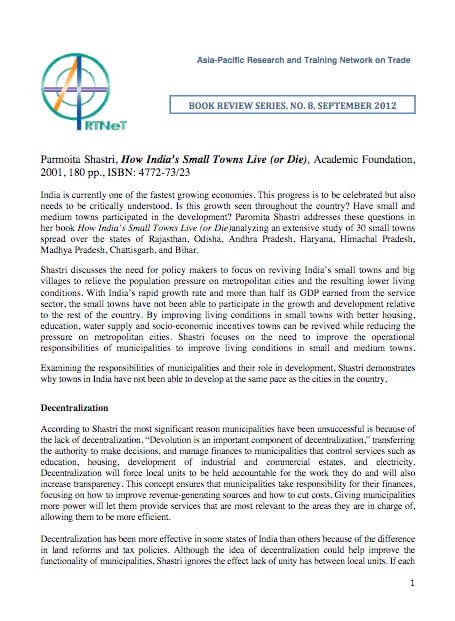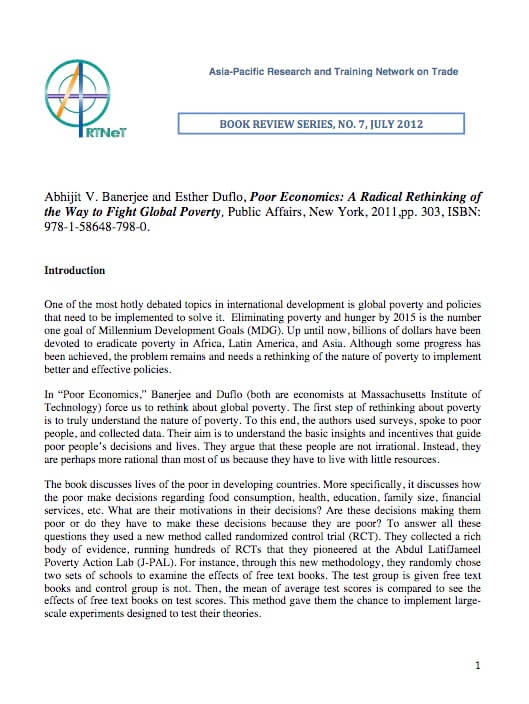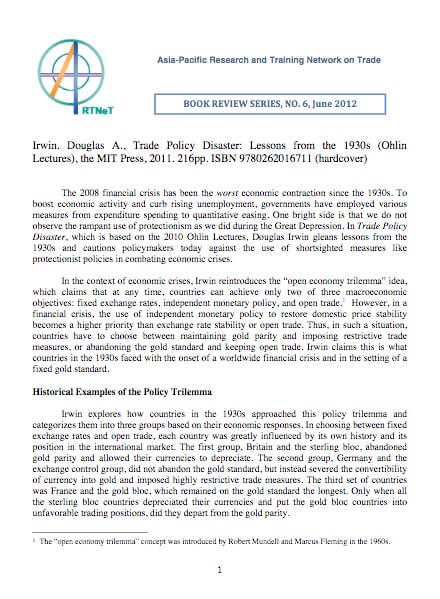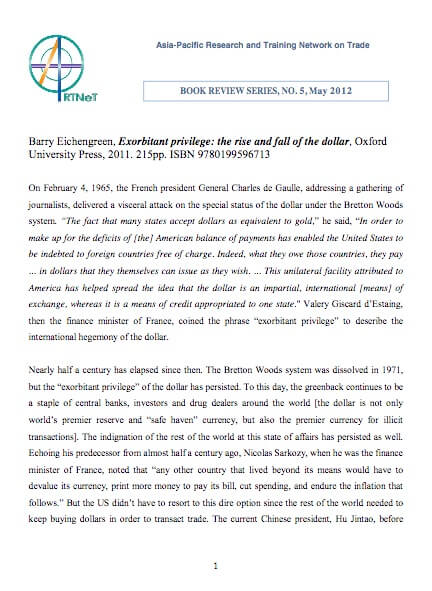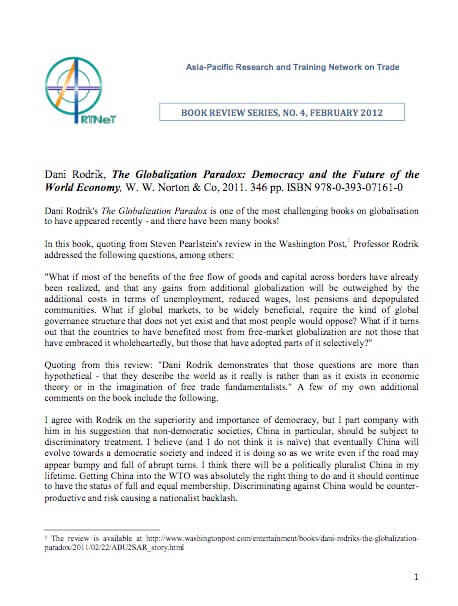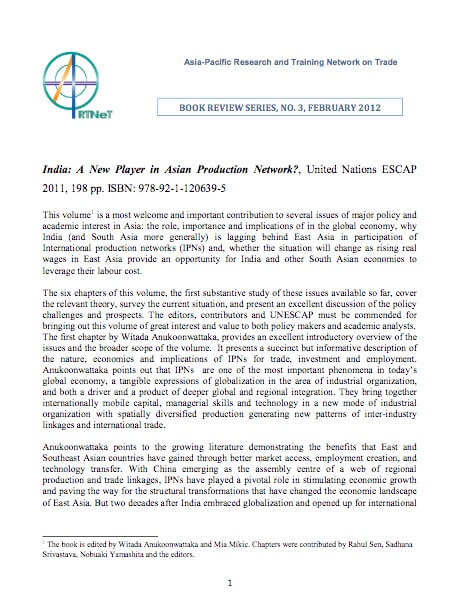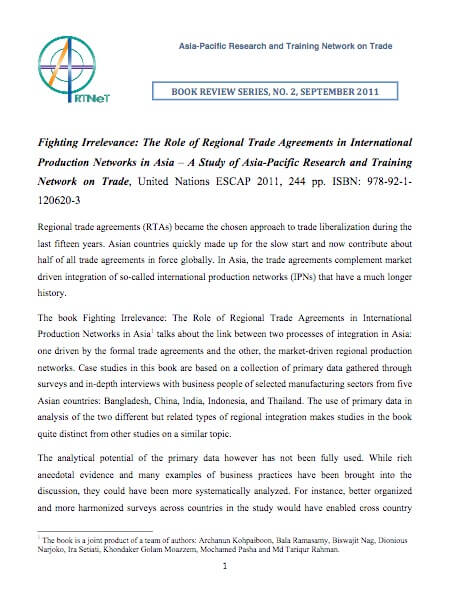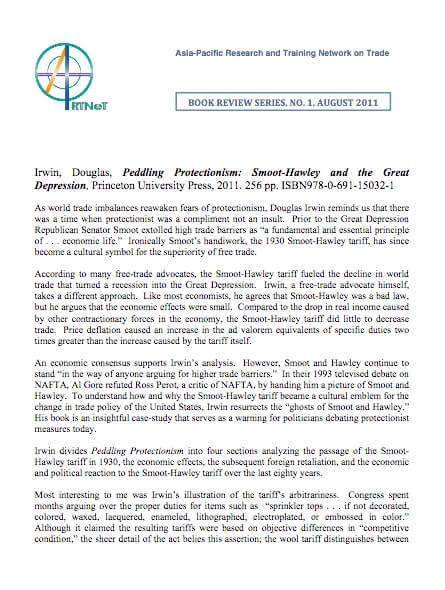End This Depression Now!
In the fifth year of the global economic crisis, Paul Krugman gives a prescription for a full recovery in his book End This Depression Now! His preferred remedy is increasing government spending to cure the United States’ unemployment problem. The book is a sustained argument to shift public opinion in favor of government stimulus in order to reduce the damaging consequences of sustained high unemployment and underemployment. Throughout the book, Krugman is accompanied by, his intellectual mentors, John Maynard Keynes, Irving Fisher and Hyman Minsky.

